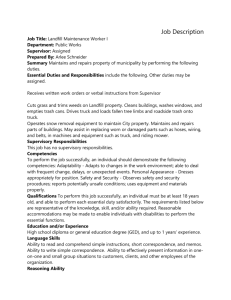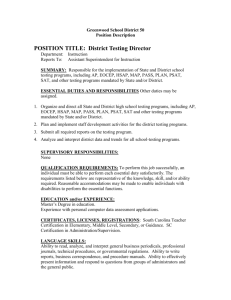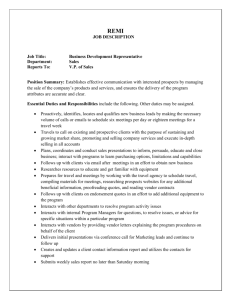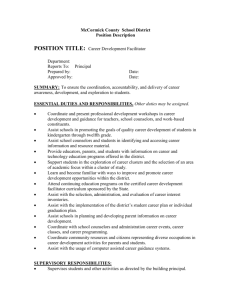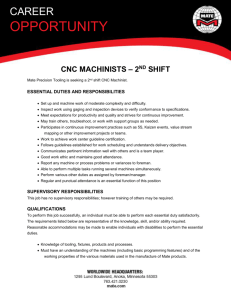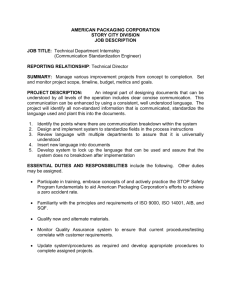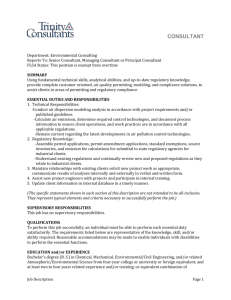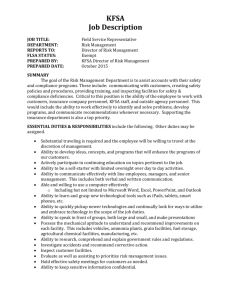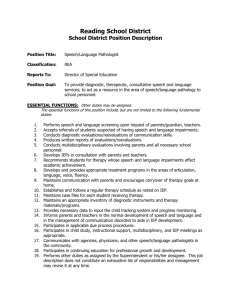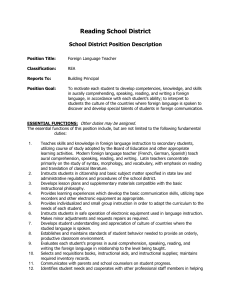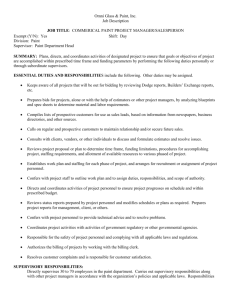SYSTEMS ADMINISTRATOR III DEFINITION Under the general
advertisement
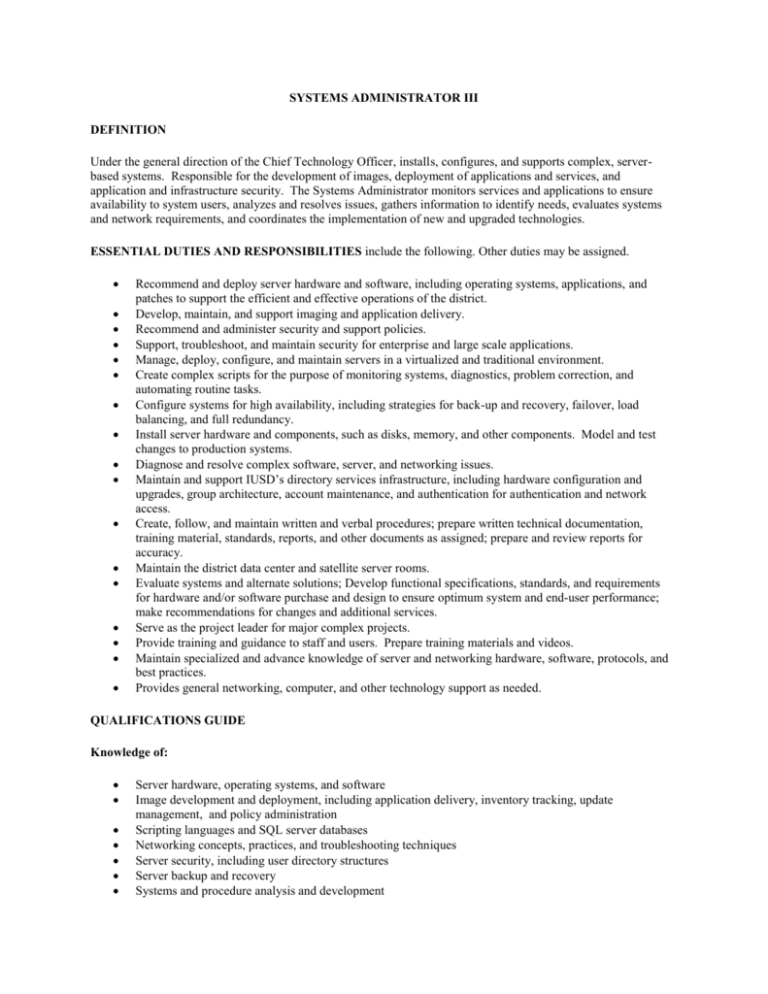
SYSTEMS ADMINISTRATOR III DEFINITION Under the general direction of the Chief Technology Officer, installs, configures, and supports complex, serverbased systems. Responsible for the development of images, deployment of applications and services, and application and infrastructure security. The Systems Administrator monitors services and applications to ensure availability to system users, analyzes and resolves issues, gathers information to identify needs, evaluates systems and network requirements, and coordinates the implementation of new and upgraded technologies. ESSENTIAL DUTIES AND RESPONSIBILITIES include the following. Other duties may be assigned. Recommend and deploy server hardware and software, including operating systems, applications, and patches to support the efficient and effective operations of the district. Develop, maintain, and support imaging and application delivery. Recommend and administer security and support policies. Support, troubleshoot, and maintain security for enterprise and large scale applications. Manage, deploy, configure, and maintain servers in a virtualized and traditional environment. Create complex scripts for the purpose of monitoring systems, diagnostics, problem correction, and automating routine tasks. Configure systems for high availability, including strategies for back-up and recovery, failover, load balancing, and full redundancy. Install server hardware and components, such as disks, memory, and other components. Model and test changes to production systems. Diagnose and resolve complex software, server, and networking issues. Maintain and support IUSD’s directory services infrastructure, including hardware configuration and upgrades, group architecture, account maintenance, and authentication for authentication and network access. Create, follow, and maintain written and verbal procedures; prepare written technical documentation, training material, standards, reports, and other documents as assigned; prepare and review reports for accuracy. Maintain the district data center and satellite server rooms. Evaluate systems and alternate solutions; Develop functional specifications, standards, and requirements for hardware and/or software purchase and design to ensure optimum system and end-user performance; make recommendations for changes and additional services. Serve as the project leader for major complex projects. Provide training and guidance to staff and users. Prepare training materials and videos. Maintain specialized and advance knowledge of server and networking hardware, software, protocols, and best practices. Provides general networking, computer, and other technology support as needed. QUALIFICATIONS GUIDE Knowledge of: Server hardware, operating systems, and software Image development and deployment, including application delivery, inventory tracking, update management, and policy administration Scripting languages and SQL server databases Networking concepts, practices, and troubleshooting techniques Server security, including user directory structures Server backup and recovery Systems and procedure analysis and development Ability to: Communicate effectively in both oral and written form. Develop and maintain effective working relationships with staff, users, administrators and vendors. Design, install, maintain, and document network hardware, software, and operating systems. Troubleshoot complex network and server issues Prepare cost/benefit analyses. Implement systems to protect data security. Train users and staff. Develop functional specifications, standards, and requirements for hardware and/or software purchase and design to ensure optimum system and end-user performance.. Create complex scripts. Work in a virtualized environment and manage computers remotely. Training and Experience: Any combination equivalent to: bachelor’s degree in information systems, computer science, or related field, supplemented with course work or experience in the training, programming, use, and installation of server hardware and software; and five years of professional experience in position related to job duties. QUALIFICATION REQUIREMENTS To perform this job successfully, an individual must be able to perform each essential duty satisfactorily. The requirements listed above are representative of the knowledge, skill and/or ability required. Reasonable accommodations may be made to enable individuals with disabilities to perform the essential functions. REASONING ABILITY Ability to define problems, collect data, establish facts, and draw valid conclusions. Ability to interpret an extensive variety of technical instructions in mathematical or diagram form. Ability to implement effective strategies, with consideration for both abstract and concrete variables, in situations where only limited standardization exists. PHYSICAL DEMANDS The physical demands described here are representative of those that must be met by an employee to successfully perform the essential functions of this job. Reasonable accommodations may be made to enable individuals with disabilities to perform the essential functions. While performing the duties of this job, the employee is regularly required to walk; use hands to finger, handle, or feel objects, tools, or controls; and talk or hear. The employee is occasionally required to stand, sit, and reach with hands and arms. Specific vision abilities required by this job include close vision, distance vision, color vision, peripheral vision, depth perception, and the ability to adjust focus. WORK ENVIRONMENT The work environment characteristics described here are representative of those an employee encounters while performing the essential functions of this job. Reasonable accommodations may be made to enable individuals with disabilities to perform the essential functions. While performing the duties of this job, the employee occasionally works near moving mechanical parts. The noise level in the work environment is usually moderate. Rev. 08/2012

